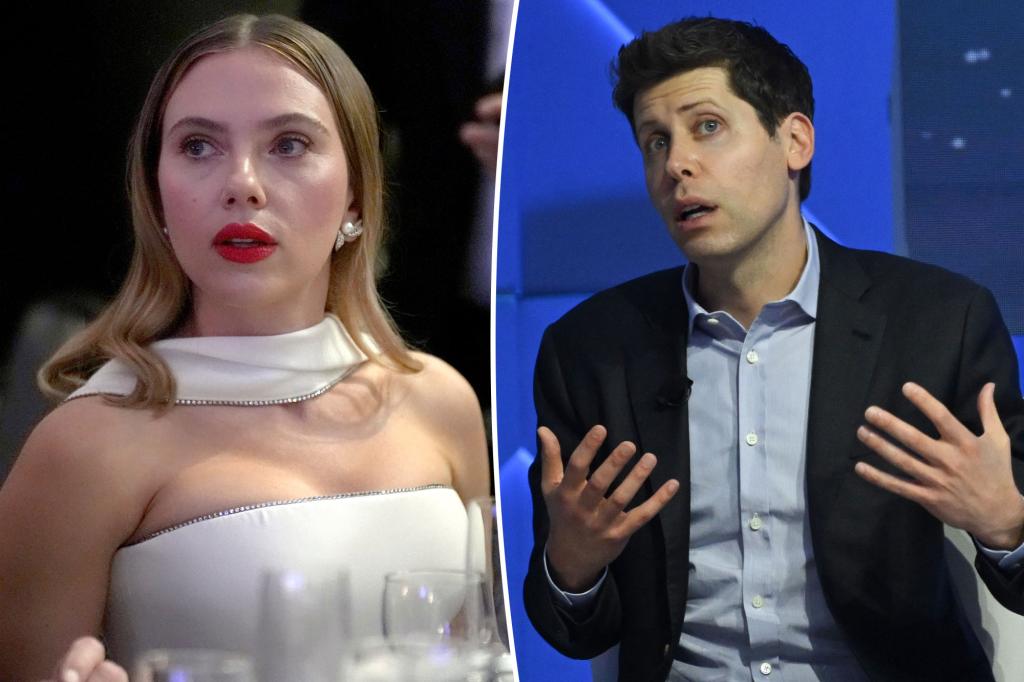Scarlett Johansson revealed that she declined an offer from OpenAI to voice their new ChatGPT 4.0 system, “Sky,” because she felt that it sounded exactly like her. The actress received the offer from CEO Sam Altman in September 2023, who believed that Johansson’s voice would bridge the gap between tech companies and creatives and provide comfort to consumers amidst the transformation of human and artificial intelligence interactions. After careful consideration, Johansson decided to decline the offer for personal reasons.
Following a live demonstration of the voice last week, many people, including Johansson’s friends, family, and the general public, noted that “Sky” sounded very similar to the actress. Johansson pointed out that the voice has been compared to her performance in the 2013 film “Her,” in which she voiced the female operating system that the main character falls in love with. Johansson expressed shock and disbelief that Altman would pursue a voice that resembled hers so closely, and she mentioned that he even insinuated that the similarity was intentional in a tweet.
Johansson claimed that Altman had asked her to reconsider the offer two days before the “Sky” demo was released. However, before they could discuss the matter further, the voice was already made public. Consequently, Johansson had to hire legal counsel, who sent Altman and OpenAI two letters asking for details on how the “Sky” voice was created. OpenAI eventually agreed to take down the “Sky” voice after facing pressure from Johansson, who underlined the importance of clarity in matters involving deepfakes and the protection of individuals’ likeness and identity.
The news of Johansson’s dispute with OpenAI and her decision to decline the offer came to light after her husband, Colin Jost, joked about the situation on “Saturday Night Live.” In response to the growing questions about their choice of voice for ChatGPT, OpenAI announced that they would pause the use of “Sky” while addressing the concerns. They clarified in a blog post that the voice was not an imitation of Scarlett Johansson, but belonged to a different professional actress using her own natural speaking voice. The company chose not to reveal the actress’s name to protect her privacy.
Johansson emphasized the need for transparency and appropriate legislation to protect individuals’ rights, especially at a time when deepfakes and the appropriation of likeness are prevalent concerns. She expressed her hope for a resolution that would ensure clarity in such matters and guarantee the protection of individual rights. While OpenAI took action to address the issue surrounding the “Sky” voice, the incident sheds light on the complexities and ethical considerations involved in using artificial intelligence technology in ways that may infringe upon individual identity and likeness. Johansson’s decision to decline the offer and pursue legal action highlights the importance of accountability and responsibility in the development and deployment of AI systems that involve human voices and identities.


